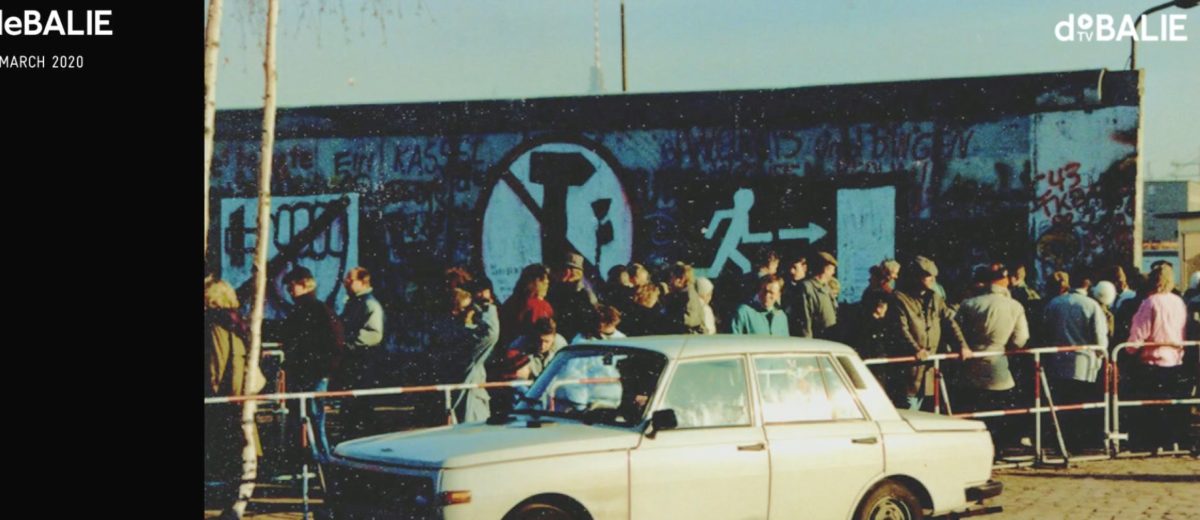A week after Tom Holland’s talk about ‘the Light that shone in the darkness’ in Amsterdam’s de Balie culture centre, Ivan Krastev spoke on the same podium about his book ‘The Light that Failed’, co-authored with American Stephen Holmes.
The Englishman’s ‘Light’ was the light of Christ from John chapter one, the revolutionary movement which he argued had shaped the West. The Bulgarian’s ‘Light’ was liberal democracy, proclaimed as the end-point of history just three decades ago.
For in ‘The End of History and the Last Man’ (1992), Francis Fukuyama announced the climax of mankind’s ideological evolution and the universalisation of Western liberal democracy as the final form of human government. The Berlin Wall was down. Communism was bankrupt. The Cold War was over. The West had won. A universal utopia had arrived. A new global era of open borders had begun. Only one logical option remained for the world’s nations to choose: liberal democracy.
Fukuyama’s book was hailed as defining a future in which the principles of liberalism, ‘absolute and unable to be improved upon’, simply had to be extended to ‘the various provinces of human civilisation’.
Or so it seemed. Krastev and Holmes remind us that when President Reagan had told Chairman Gorbachev to ‘tear down this wall’ in front of a watching world, there were only 16 militarised border fences in the world. Today, legitimated by an American president’s ‘salvation-by-wall rhetoric’, 65 fortified perimeters are either completed or under construction.
Desires are imitative
What has happened that turned Central and Eastern European nations like Hungary and Poland, EU member-states, into bastions of xenophobia and ‘illiberalism’? Why has post-communist Russia, once a potential ally, become an outright enemy of the West? How has an internationally-assertive China risen so quickly to challenge American hegemony globally? How is it possible that an American president could elevate Putin’s Russia and Orban’s Hungary into illiberal models for his own nation which Fukuyama had declared was the liberal model the rest of the world was destined to follow?
Krastev and Holmes (themselves representing both East and West) have given us a work of political psychology which promises to be as defining as was Fukuyama’s analysis, only more accurate. It gives plausible answers to the above questions in terms of the ‘Mimetic’ theory of French philosopher René Girard, the idea that our desires are imitative. Mimetic theory reveals the deep hold society has on our imaginations and our longings. We want things because others want them. And, Girard realised, these desires can have a murderous twist: scapegoating. An atheist until his work on mimetic theory and the Bible led him to see things differently, Girard discovered how the Bible’s stories denounce scapegoating, culminating in the ultimate scapegoat, Jesus. The Cross exposes scapegoating as a lie and thereby empties it of its power (a point Holland also stressed in his talk).
Krastev explained to his audience that the fall of communism produced two groups of nations: the imitated (Western liberal democracies) and the imitators (the rest). Over time, such imitation of the West bred deep resentment, as Girard had predicted. (He could have also quoted Girard to explain the scapegoating characteristic of populism, blaming migrants, Muslims, Mexicans, foreigners and guest workers ‘stealing our jobs’…)
Three reactions
Krastev and Holmes identify three parallel interconnected reactions resulting in today’s global anti-liberal revolt against the Western assumption that every state should follow their liberal model.
The first is what they call the ‘intolerant communitarianism’ of Central and Eastern European populists, particularly Orban in Hungary and Kaczynski in Poland. Populism’s political rise cannot be adequately explained, they argue, without recognising widespread and deep resentment at the way (imposed) no-alternative Soviet communism was replaced by (invited) no-alternative Western liberalism. This imitation was begun as a genuine desire to become prosperous and free like (their imagination of) the West. In varying degrees, it gave rise to anti-Western counter-elites opposing the EU’s universalism of human rights and open-border liberalism as indifference towards national traditions and heritage.
Russia, the second reaction, humiliated after being demoted as a world power, felt forced to feign gratitude for poorly-prepared advice by American consultants preening an attitude of superiority. Russian political elite faked democracy at first, then switched to violent parody, mirroring ‘odious American hegemonic behaviour’. This explains Russian interference in American elections, mirroring what the Kremlin sees as constant American interference in Russian political life.
China is the third category. While imitating scientific and engineering methods from the West, her long history of humiliation by Western powers has bred a stubborn resistance to foreign socio-political ideas and influences.
The Age of Liberal Imitation is over, suggest Krastev and Holmes. But the Age of Illiberal Imitation may have just begun: the president of the ultimate model of liberal democracy has himself become both imitator and model of illiberalism.
Till next week,



